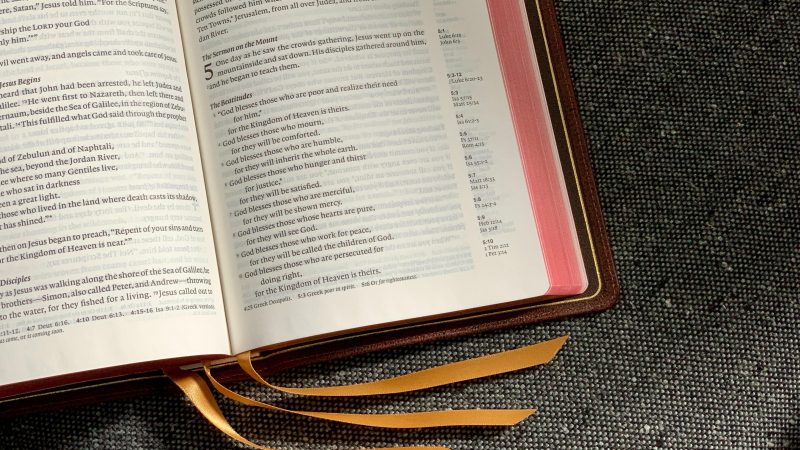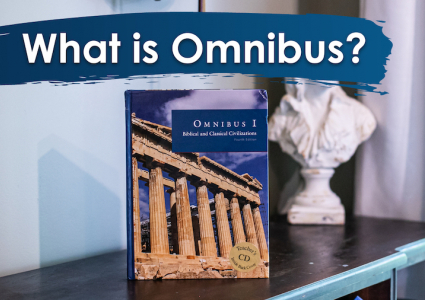3 Ways Reading Scriptures Can Correct Modern History-Twisting

When I visit someone’s house, I have this habit. I can’t help it. I spend time staring at their books and perusing their bookshelves. I do this because stories and books shape people. If you show me someone’s library, I can sketch their soul.
God knows that our view of self is tied up in a story. Maybe that’s why so much of God’s Word is made up of stories and that’s why reading stories and history is so important. Sadly, our modern age has not remembered the lessons that we should have learned from the Bible. We tell tales to ourselves and our children that are boring, stilted, or just plain false. Here are three ways the Scriptures can help us read, critique, and write better history.
Nothing in History is Morally Neutral
Our culture is full of opinions parading as news. Our news stations have morphed into something like Plato’s cave analogy. Everyone in the cave wants to see shadows that match their own intensely held beliefs. These echo chambers reinforcing the beliefs and prejudices of all cave dwellers.
Historians often try to avoid this sort of pandering. They want to achieve objectivity. In the worst history books, they achieve it by taking no side. I call these books “worst” because they say little and say very little of interest. They are like the books described as the pre-Christian Eustace’s favorites in The Chronicles of Narnia. They are full of pictures of fat children exercising and long discourses on the price of wheat. (Perhaps, I should say “almost worst” because a special category of “worstness” should be reserved for preachy history books that pretend objectivity when they are biased screeds.)
The Scriptures never try to tell a story without taking a point of view and telling the story in light of that point of view. This doesn’t mean that they are merely giving an opinion. It means that really good stories have to be in the context of how these stories relate to the faithfulness and allegiance to the living God and to His Son. Remembering this can keep us out of the weeds of trying to discover some neutral place of secular rationality. That place does not exist and never will.
The Scriptures Praise the Heroic But Demolish “Hagiography”
Hagiography is “Saint-Writing”. Often when church history is recorded, we end up with stories of the saints that portray them as flawless, holy individuals. This is how the stories of ancient pagan kings are told. They never make mistakes; they never sin; they always do the heroic and sometimes accomplish the unbelievable. The Kim Dynasty in North Korea still hits these notes. It is reported by Golf.com that Kim Jong Il shot 34 on an 18 hole course. (That’s 38 shots under par.)
Our cynical modern age answers hagiography by tearing down all heroes and laughing at all virtues. This justifies apathy and snark. This happens regularly in election season, but it also happens in history writing. I have read a few biographies on George Washington. Modern historians love to point out weaknesses or mistakes that he made. He did have flaws. He is, however, a strikingly virtuous man. For this reason, lesser men often excuse their own flaws by tearing men like Washington down instead of becoming more virtuous themselves. Tearing down is easier than living a virtuous life.
The Scriptures don’t fall off either side of this log. They praise virtue. David is a man after God’s own heart. He is a fearless warrior. He is a wise king. He is a great poet. They don’t paper over sins or flaws. David slept with Bathsheba. Moses struck the rock. Peter denied Christ three times. Of course, Jesus is flawless because He is God, but even the stories about Him are not hagiography. He weeps. He calls people white-washed tombs. He has a prositute anoint his feet with perfume. Jesus is amazing precisely because he is NOT the caricature of the heroic that we tend to manufacture.
When we read or write history, we should aim at recognizing greatness and praising it, but we should be honest about the sins and flaws of even the most heroic characters.
The Scriptures Tell the Story of the Oppressed with Justice and Hope
Our age is entranced by power. We crave it and we loathe it. Modern people turn history into a story of oppressed and oppressor. Sadly, oppression is real and people throughout history have suffered injustice. Modern historians often speak in these terms about people or groups, but too often they fail to provide any hope that justice or progress can be made. They leave people stuck feeling powerless and angry.
The Bible looks oppression in the face without losing hope. It also gives the true starting point for any real quest for justice and liberation: embracing a crucified Christ and taking up a cross to follow Him. It is in peace with the living God that we find mercy rather than justice and hope because the grave could not hold Jesus. Anyone in Christ can’t be held by death.
Believing in Jesus does not end all oppression, but it creates a path of love that provides the opportunity for real forgiveness and justice, albeit imperfect justice, to take shape in our world.
The Scriptures are so full. They offer us so much. In them, we learn of God and salvation. Reading them thoughtfully also shows us how to face life, how to love good stories, and how to tell them as well.






